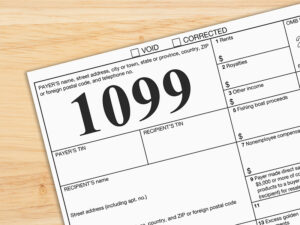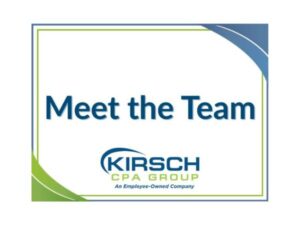GAAP vs. Tax-Basis Accounting: What’s Right for Your Company?
Kirsch CPA Group
Apr 10, 2024

Does your business need to prepare financial statements that conform to U.S. Generally Accepted Accounting Principles (GAAP)? Or can you simply generate financial statements based on the same methods you use for federal income tax purposes? It’s important for business owners and managers to understand the key differences between these two common accounting frameworks, so they don’t miss out on potential business opportunities.
GAAP Basics
GAAP is the most common financial reporting standard in the United States. It’s based on the principle of conservatism, which generally ensures proper matching of revenue and expenses with a reporting period. The principle also aims to prevent companies from overstating profits and asset values to mislead investors and lenders.
The Securities and Exchange Commission requires public companies to follow GAAP. Many lenders expect private borrowers to follow suit, because GAAP is familiar and consistent. Likewise, if management plans to sell the company, prospective buyers may prefer to perform due diligence on GAAP financial statements — or they may be public companies that are required to follow GAAP.
Tax-Basis Framework
However, some private companies opt to report financial results using a special reporting framework. One common format is based on reporting for federal income tax purposes. Contrary to GAAP, tax laws generally tend to favor accelerated gross income recognition and won’t allow taxpayers to prematurely deduct expenses until the amounts are known and other deductibility requirements have been met. In general, a company’s taxable income as reported in accordance with the tax-basis framework tends to be higher than its pretax profits as reported in accordance with GAAP.
In determining whether to use the tax-basis framework, management needs to decide if outside parties are going to rely on the financial statements. Tax-basis reporting may be appropriate if a business is owned, operated and financed by individuals closely involved in day-to-day operations who understand its financial position. However, investors and lenders generally prefer GAAP financials to help them compare your company’s financial performance to others in the same industry.
Key Differences
When comparing GAAP and tax-basis statements, one difference relates to terminology used on the income statement: Under GAAP, companies report revenue, expenses and net income. Tax-basis entities report gross income, deductions and taxable income. Tax-basis entities report nontaxable items typically as separate line items or as footnote disclosures.
Capitalization and depreciation of fixed assets is another noteworthy difference. Under GAAP, the cost of a fixed asset (less its salvage value) is capitalized and systematically depreciated over its useful life. Companies that use GAAP must assess whether useful lives and asset values remain meaningful over time and occasionally incur impairment losses if an asset’s market value falls below its book value. For tax purposes, fixed assets are depreciated under the Modified Accelerated Cost Recovery System (MACRS), which generally results in shorter lives than under GAAP. Salvage value isn’t subtracted for tax purposes, but Section 179 and bonus depreciation deductions are subtracted before computing MACRS deductions.
Other reporting differences exist for inventory, pensions, leases, and accounting for changes and errors. Tax laws also prohibit deducting the following items:
- Penalties and fines,
- Start-up costs, and
- Accrued vacations (unless they’re taken within 2½ months after the end of the taxable year).
In addition, companies record allowances for bad debts, sales returns, inventory obsolescence and asset impairment under GAAP. These allowances generally aren’t permitted under tax law. Instead, they’re deducted when transactions take place or conditions are met that make the amount fixed and determinable.
Get It Right
The optimal financial reporting method depends on your company’s situation. Contact Kirsch CPA Group to discuss the pros and cons of each method to help you choose the appropriate financial reporting framework.
Schedule an appointment to learn how we can support you
© Copyright 2024. All rights reserved.
More Resources

About The Author
Kirsch CPA Group is a full service CPA and business advisory firm helping businesses and organizations with accounting,…
Sign Up for Email Updates
Tags
Accounting & Financial News

1099 Rules Changes for Businesses
The One Big Beautiful Bill Act (OBBBA) eased the rules in 2026 for Form 1099-NEC, "Nonemployee Compensation,"…




